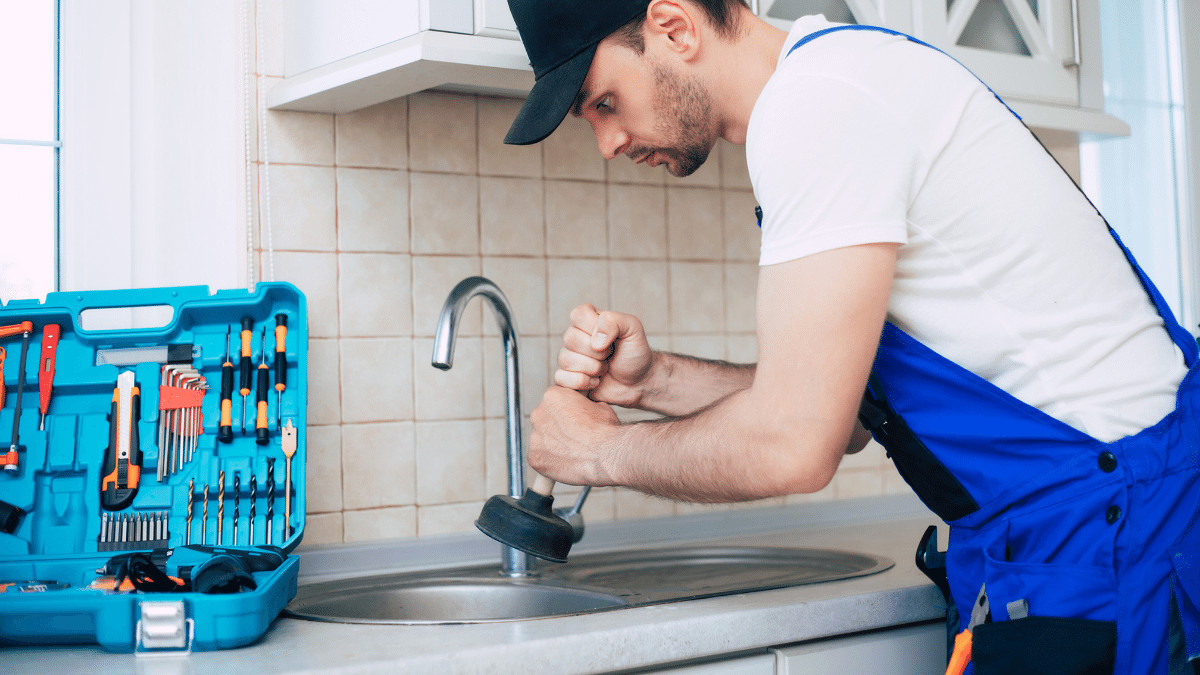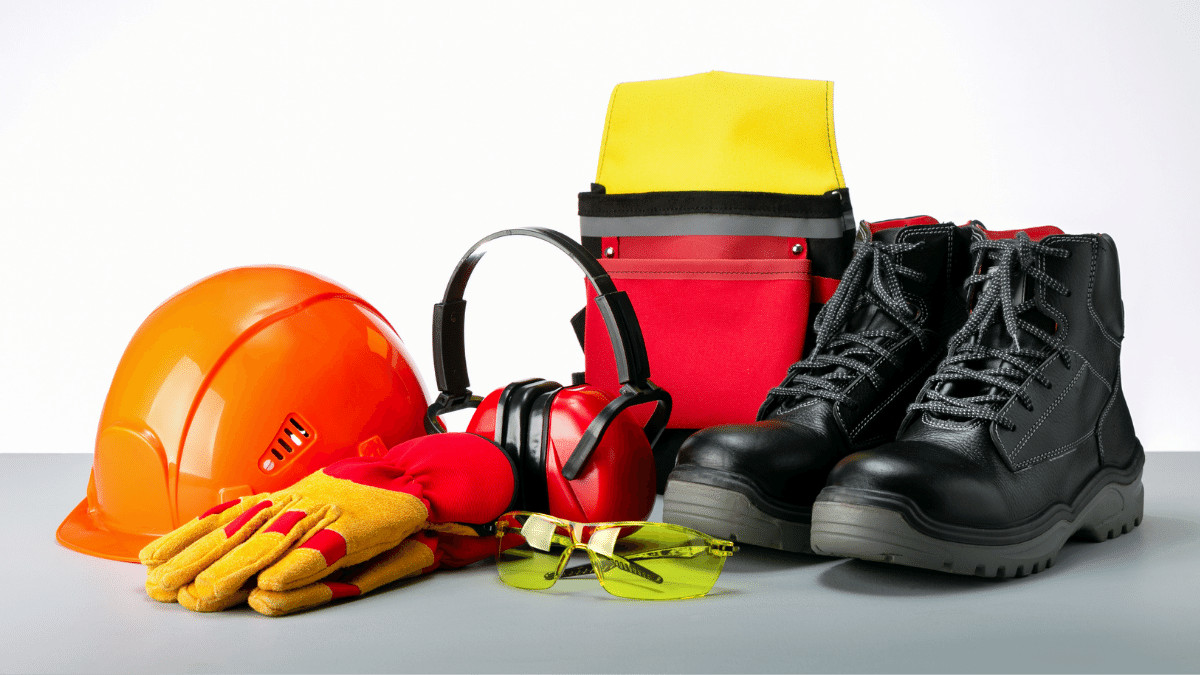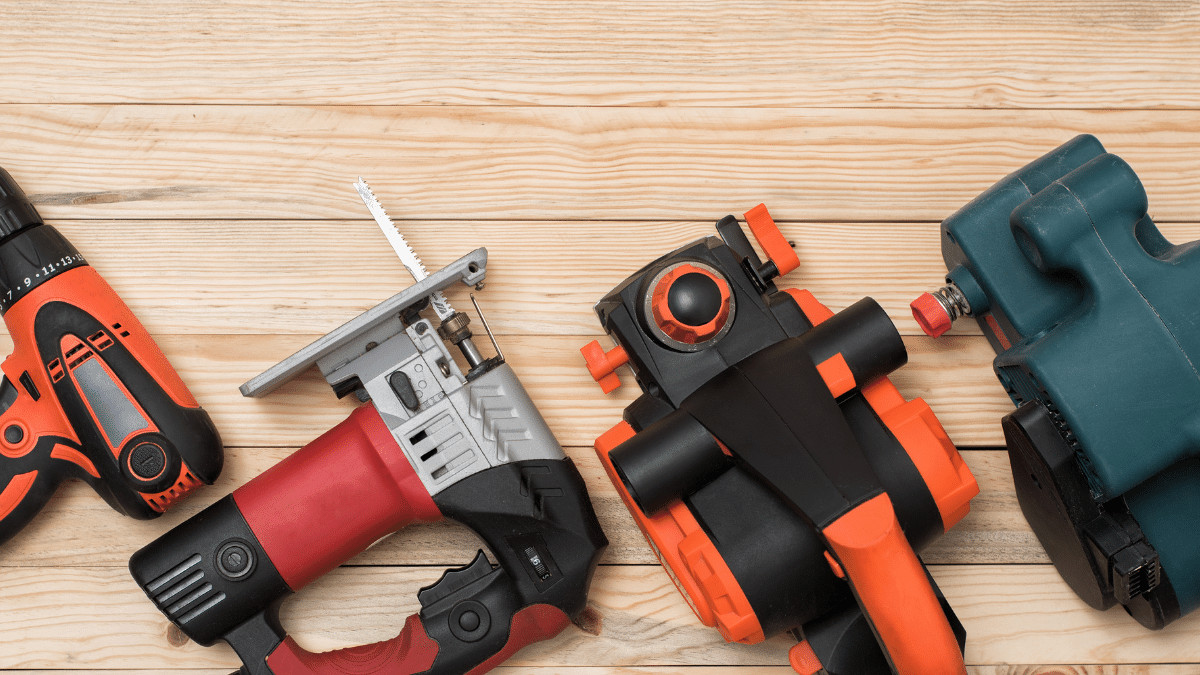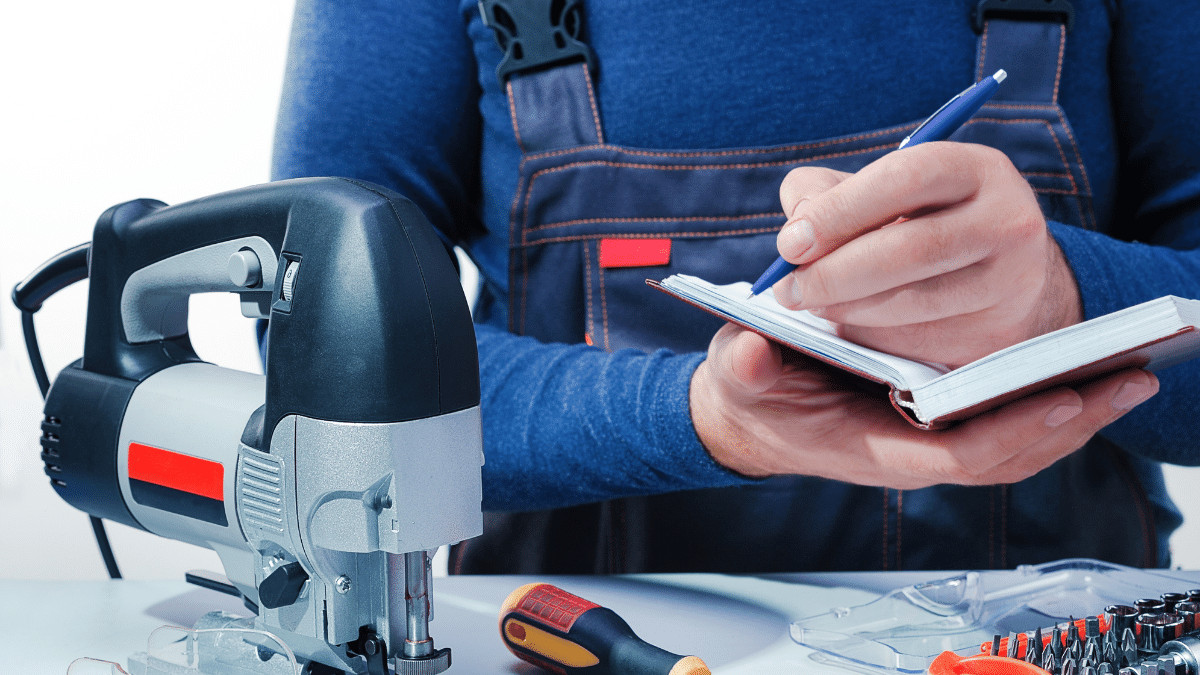In the ever-evolving landscape of property maintenance and repair, the distinction between a task accomplished and a task accomplished masterfully often hinges on the tools you have at your disposal. Whether you’re a seasoned handyman with years of experience under your belt or a newcomer dipping your toes into the home repair industry, the truth remains unchallenged – the tools you wield are integral to your success.
As a professional handyman, the scope of your work is expansive – you could be mending a leaky pipe one moment and rewiring a room the next, crafting a wooden cabinet in the morning, and repairing a brick wall in the afternoon. To effectively navigate this wide array of tasks and deliver high-quality results, you require more than just aptitude and experience – you require a toolbox that’s prepared for every challenge.
Remember, your tools aren’t simply facilitators of your work; they represent an investment in your craft. Superior tools can transform a daunting task into a smooth process, and turn a quick fix into a long-term solution. They not only augment your proficiency but also safeguard your well-being on the job.
So, what constitutes a well-equipped toolbox? In this guide, we’ve put together an exhaustive list of the top 50 indispensable tools that every professional handyman should possess. This list is designed to prepare you for any task that might come your way, laying the groundwork for your success and safety in your handyman pursuits.
But before we delve into that, let’s address a frequently asked question: What are the key responsibilities of a handyman?
What are the key responsibilities of a handyman?
A handyman plays a critical role in the maintenance and improvement of homes, businesses, and other types of properties. The responsibilities of a handyman can vary greatly depending on the needs of their clients and their own areas of expertise, but here are some of the key duties they generally perform:
- Performing Maintenance and Repairs: A handyman is typically responsible for performing a wide range of maintenance and repair tasks around a home or business. This can include fixing leaky faucets, repairing broken furniture, patching up holes in walls, replacing light fixtures, and more.
- Home Improvement Projects: Many handymen also undertake small to medium-sized home improvement projects, such as painting rooms, installing cabinets, laying tile, or building decks.
- Inspecting Properties: A handyman may also be responsible for inspecting properties for minor issues and damage. This can include checking plumbing for potential leaks, inspecting electrical systems for safety, or looking for structural issues that may require repair.
- Specialized Tasks: Depending on their skill set, a handyman may also perform more specialized tasks such as minor plumbing or electrical work, HVAC maintenance, or appliance repair and installation.
- Providing Estimates: Handymen often provide estimates for work to be done. This requires a good understanding of the time and materials required for various tasks.
- Maintaining Tools and Equipment: A handyman is responsible for maintaining their own tools and equipment, ensuring they are in good working order and safe to use.
- Customer Service: A handyman often works directly with clients, so good customer service skills are essential. This can include accurately understanding and responding to a client’s needs, communicating clearly and professionally, and ensuring client satisfaction with the work performed.
- Staying Updated: As a professional in the home maintenance field, a handyman has a responsibility to stay updated with new techniques, materials, and regulations relevant to their work.
- Compliance and Safety: Handymen must comply with all local codes and regulations and follow safe work practices at all times. This includes wearing appropriate safety gear and ensuring work areas are safe for both themselves and the property’s inhabitants.
Remember, a handyman’s responsibilities can greatly vary depending on the job at hand and their area of expertise.
Top 50 Essential Tools for Professional Handymen
- Hammer: For driving nails, breaking objects, and many other tasks.
- Screwdriver Set: Both flat-head and Phillips-head, for various applications.
- Adjustable Wrench: Adapts to different sizes of nuts and bolts.
- Utility Knife: Essential for cutting and trimming tasks.
- Tape Measure: Accurate measurements are crucial in any handyman task.
- Power Drill: Saves time on drilling holes and driving screws.
- Pliers Set: Needle-nose and groove-joint types are the most common.
- Level: Ensures your installations are perfectly horizontal or vertical.
- Flashlight: A must-have for working in dimly lit areas.
- Toolbox or Tool Bag: Keeps your tools organized and easy to transport.
- Cordless Impact Driver: Powerful tool for driving screws and bolts.
- Stud Finder: Essential for locating studs behind the drywall.
- Putty Knife: Useful for applying fillers, pastes, and spreading material.
- Socket Set: Necessary for tightening and loosening different bolts.
- Circular Saw: For making quick and straight cuts.
- Ladder: To reach high places safely.
- Pry Bar: Helpful in removing nails and prying apart materials.
- Chisel Set: Ideal for carving and cutting wood.
- Wire Strippers: Perfect for any electrical work.
- Allen Wrench Set: For screws that a regular screwdriver or wrench can’t handle.
- Safety Glasses: Protects your eyes from debris.
- Work Gloves: Protects your hands while working.
- Sander: For smoothing surfaces.
- Hacksaw: Versatile saw for cutting through metal and plastic.
- Masonry Drill Bits: For drilling into concrete or brick.
- Electrical Tester: Crucial for any electrical tasks for safety.
- Caulking Gun: Useful for sealing gaps and cracks.
- Pipe Wrench: For plumbing tasks requiring a tight grip.
- Clamps: To hold objects together when gluing or cutting.
- Voltage Tester: For checking the presence of electricity.
- Multimeter: For diagnosing electrical problems.
- Jigsaw: For cutting curves and complex shapes in wood.
- Extension Cord: To extend your reach in large areas or outdoor spaces.
- Nail Set: Helps countersink nails or start nail holes.
- Crowbar: For heavy-duty demolition work.
- Tool Belt: Keeps your most used tools at your fingertips.
- Dust Mask: For safety when working in dusty environments.
- Wood Glue: Useful for minor carpentry repairs.
- Bench Vise: Keeps objects secure while you’re working on them.
- Bolt Cutters: For cutting through heavy-duty bolts and chains.
- Chalk Line: For marking long straight lines on flat surfaces.
- File Set: For smoothing edges and fine-tuning your work.
- Tin Snips: For cutting through sheet metal.
- Torpedo Level: For checking level on small spaces.
- Paint Brushes and Rollers: For painting tasks, having a variety of sizes is helpful.
- Plunger: An essential tool for any plumbing issue.
- Wire Brush: Useful for cleaning and prepping surfaces.
- Ear Protection: Necessary when using loud power tools.
- Trowel: Handy for spreading mortar, plaster, or filler.
- Duct Tape: Known for its versatility in various repair situations.
FAQ about Handyman Tools
Depending on the tasks they frequently handle, an expert handyman might need specialty tools like pipe cutters for plumbing work, voltage testers for electrical tasks, or masonry tools for working with concrete or brick. Advanced tools like laser measurements, thermal imaging cameras, or rotary tools might also be useful in certain situations.
As a handyman contractor, the tools you choose to use can greatly influence the quality and efficiency of your work. Having the right tools at your disposal can streamline your processes, enabling you to execute tasks with greater speed and precision. This directly translates into more satisfied customers, glowing reviews, and increased business opportunities. Here’s how:
Enhanced Efficiency: The right tools can expedite your tasks, reducing the time spent on each job. This allows you to serve more clients within the same timeframe, boosting your productivity and earnings.
Improved Accuracy: High-quality tools can improve the precision of your work, resulting in superior results. Whether it’s a perfectly leveled shelf or a seamlessly installed light fixture, the attention to detail made possible by the right tools can significantly elevate the quality of your work.
Increased Customer Satisfaction: Efficient and accurate work leads to satisfied clients. Happy clients are more likely to become repeat customers, recommend your services to others, and leave positive reviews, all of which can help your business thrive.
Safety: The right tools are not just about speed and precision; they’re also about safety. Using the correct tool for the job can minimize the risk of accidents, protecting both you and your clients’ property.
A handyman contractor should have a comprehensive range of tools to handle a variety of tasks. This includes basic tools like hammers, screwdrivers, wrenches, and utility knives, as well as power tools like drills and saws. Specialized tools like voltage testers, pipe wrenches, and stud finders may also be necessary depending on the tasks at hand.
The quality of your tools is extremely important as a handyman contractor. High-quality tools not only perform better but also last longer, providing better value over time. They can also enhance your efficiency and the quality of your work, which is crucial in maintaining your reputation as a professional handyman.
Safety should always be a top priority for a handyman contractor. Operating power tools, climbing ladders, working with electricity or hazardous materials, and many other tasks can pose potential risks. Therefore, it’s essential to have the right safety equipment on hand and to use it properly. Here are some critical pieces of safety equipment every handyman contractor should have:
Safety Glasses: These protect your eyes from flying debris, dust, and chemicals. They’re essential when drilling, sawing, or working with potentially harmful substances.
Work Gloves: A good pair of work gloves can protect your hands from cuts, scrapes, and blisters. They can also provide a better grip on tools and materials.
Ear Protection: Power tools can be loud. Prolonged exposure to high noise levels can damage your hearing, making ear protection essential when using such tools.
Dust Masks or Respirators: These protect your lungs from dust, fumes, and other harmful particles. They’re especially important when sanding, painting, or working with chemicals.
Hard Hats: If you’re working in an area where there’s a risk of falling objects, a hard hat is essential. They can also protect your head if you accidentally bump it on a hard surface.
Safety Boots: These protect your feet from heavy falling objects and sharp items on the ground. Many safety boots also have slip-resistant soles, which can prevent falls in slippery areas.
Choosing the right tool involves understanding the requirements of the job and the capabilities of the tool. The right tool should allow you to complete the job efficiently and safely. For instance, if you’re working with electricity, you’ll need tools specifically designed for that purpose, like voltage testers or wire strippers.
Effective organization of tools can be achieved through the use of toolboxes, tool bags, or tool belts. Sorting tools based on their purpose or frequency of use can be helpful. For example, keep all your electrical tools together, or keep the most frequently used tools in the most accessible places.
While high-quality tools are a good investment, it’s not always necessary to buy the high-end ones right away, especially if you’re just starting as a handyman contractor. Start with reliable, good-quality tools that fit your budget, and upgrade as you grow in your profession and take on more complex jobs.
Safety features like auto-stop, electric brakes, blade guards, and safety switches are essential. Power tools should also have comfortable, non-slip grips and should be well-balanced to minimize the risk of accidents.
Investing in higher-capacity batteries and having multiple batteries that you can rotate can ensure uninterrupted work. Also, using brushless motor tools can provide longer run times, as they are more energy-efficient.
Always follow the manufacturer’s instructions for safe handling and storage of power tools. This typically includes disconnecting the tool from the power source when not in use, maintaining a clean work area, and storing the tools in a dry and secure location. Regular inspection and maintenance of power tools are also important to ensure their safe operation.
Saw blade selection depends on the material and the type of cut. For instance, a blade with more teeth will produce a cleaner cut, suitable for materials like plywood or laminate. On the other hand, a blade with fewer teeth removes material faster, making it suitable for rough cuts or soft materials.
Regular cleaning, proper storage, and timely servicing are crucial for power tool maintenance. This includes cleaning the tool after each use, lubricating moving parts as necessary, checking for any signs of damage or wear, and getting the tool serviced by a professional if needed.
Brushless motor power tools are more efficient, have longer run times, and generally have a longer lifespan as there are no brushes to wear out. They also tend to have better performance and can adapt to the task at hand, providing more power when needed.
Many power tools come with dust extraction attachments or can be connected to shop vacuums. Using these can help manage dust and debris during operations like drilling, cutting, or sanding. Regular cleaning of your work area is also essential.
Wrapping up Tools Every Handyman Needs
As we conclude this comprehensive exploration into the essential tools of the trade, it’s clear that being prepared with the right equipment is a significant step toward professional success. This rings particularly true for those considering becoming a vendor with United Field Services.
United Field Services is a renowned organization that values professionalism and high-quality work above all else. Our reputation as a leader in the property preservation industry is built on the exceptional service provided by our vendors. As such, our expectations are high, and meeting them requires more than just skill and experience. It demands readiness and the right resources at your fingertips.
This list of 50 essential tools serves as a roadmap to preparing for such an endeavor. It’s a guide to building your professional arsenal, designed to ensure you’re equipped to tackle any task that comes your way, maintain the highest standards of work, and uphold the reputation of the organizations you represent, like United Field Services.
Remember, the journey toward becoming a successful professional handyman or a respected vendor with United Field Services is not just about having these tools. It’s about mastering their use, understanding their applications, and treating them with care. In doing so, you elevate your work, ensuring each task you undertake is completed with the utmost efficiency and to the highest standard. With these 50 tools in your toolkit, you’re not just prepared for the job; you’re prepared for a successful career.

